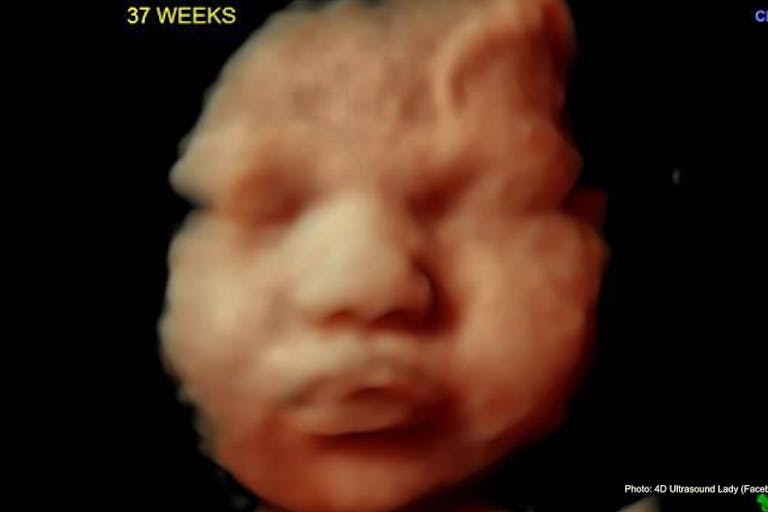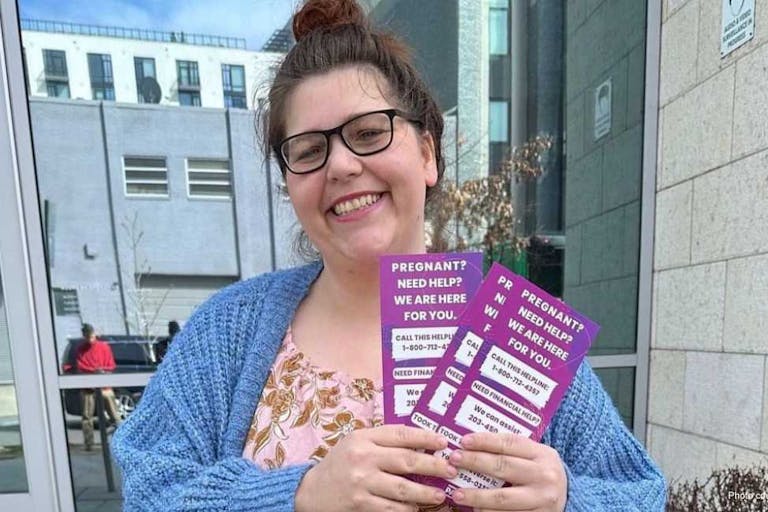
Prosecutors drop charges against Polish doctor who aborted baby in ninth month
Nancy Flanders
·
Judge denies pro-lifer Lauren Handy’s emergency motion for release from jail
UPDATE, 8/31/23: The judge has denied the emergency motion filed by Lauren Handy and her attorney yesterday. The court document reads:
Defendants have now moved for reconsideration on an emergency basis.2 Defendants argue that 18 U.S.C. § 248, commonly called the Freedom of Access to Clinic Entrances Act (or FACE Act), is not categorically a crime of violence, because a defendant may violate the statute through nonviolent means.
Though a point well taken, the Court concludes that the FACE Act creates distinct offenses, some of which are crimes of violence. Because the jury clearly convicted each Defendant on a sub-offense exclusively criminalizing violence against person or property, the Court shall DENY the [387] and [389] Emergency Motions for Reconsideration….
If the jury returned a guilty verdict only as to “physical obstruction,” the Court would conclude that the jury convicted a Defendant under subsection (b)(2). Because the jury returned a guilty verdict as to “force,” the jury convicted each Defendant of a crime of violence. The jury having done so, the Court has no choice but to order Defendants detained pending sentencing. Accordingly, and for the foregoing reasons, it is hereby ORDERED, that Defendant Handy’s [387] Emergency Motion for Reconsideration and Defendant Idoni’s [389] Emergency Motion for Reconsideration are DENIED. SO ORDERED. Dated: August 31, 2023.
8/30/23: Lauren Handy and her attorney from the Thomas More Society filed an emergency motion Wednesday, arguing that the judge in the case, Judge Colleen Kollar-Kotelly, improperly applied a law surrounding crimes of violence when she sent Handy (and four other pro-lifers) to jail.
As Live Action News previously reported, the Justice Department argued after Tuesday’s verdict that Handy and her co-defendants engaged in a “crime of violence,” which led to their incarceration. But Handy’s filing argues that such a determination requires a categorical crime of violence, which, it argues, violations of the FACE Act aren’t:
The FACE Act’s plain text explicitly prohibits using “force,” “threat of force,” “or [] physical obstruction” to intentionally injure, intimidate, “or” interfere with another because that person is or has been, or to intimidate such person from, obtaining or providing reproductive health services. 18 U.S.C. § 248(a)(1) (emphasis added). Thus, by its plain terms the FACE Act does not “always require the government to prove—… as an element of its case—the use, attempted use, or threatened use of force.” Taylor, 142 S. Ct. at 2020.
Specifically, the government can prove a completed FACE violation by showing, in part, that the defendant engaged in “physical obstruction” regardless of whether the person used actual or threatened force. The Act specifically distinguishes “physical obstruction” from “force” and “threat of force,” defining “physical obstruction” to mean “rendering impassable ingress to or egress from a” reproductive health facility, or rendering such passage “unreasonably difficult or hazardous.” 18 U.S.C. § 248(e)(4).
Article continues below
Dear Reader,
In 2026, Live Action is heading straight where the battle is fiercest: college campuses.
We have a bold initiative to establish 100 Live Action campus chapters within the next year, and your partnership will make it a success!
Your support today will help train and equip young leaders, bring Live Action’s educational content into academic environments, host on-campus events and debates, and empower students to challenge the pro-abortion status quo with truth and compassion.
Invest in pro-life grassroots outreach and cultural formation with your DOUBLED year-end gift!
Additionally, to prove a FACE violation, the government also need not show that one intended to injure another. A person violates the FACE Act if he or she merely intended to “interfere with” another, even if he does not intend or cause any injury. 18 U.S.C. § 248(a)(1) (emphasis added). Even acting with the mere intent to injure is not a categorical “crime of violence.”
The jury found Handy and her co-defendants guilty of violating the FACE Act with provisions involving the use of force and physical obstruction.
DOJ had argued the defendants committed a crime of violence under 18 U.S. Code § 3156, which defines a crime of violence as “an offense that has as an element of the offense the use, attempted use, or threatened use of physical force against the person or property of another” and “any other offense that is a felony and that, by its nature, involves a substantial risk that physical force against the person or property of another may be used in the course of committing the offense.”
Thomas More Society Senior Counsel Steve Crampton blasted the decision, saying, “In an unexpected twist, the Court found that because the violation of FACE — in this case — was a crime of ‘violence,’ all five defendants must be immediately incarcerated. So, the defendants were led out of the courtroom by an army of U.S. Marshals.”
“This is an outrage, and the one thing the defendants had really agreed upon was to remain non-violent. The real violence is what happens during the abortion procedure.”
Wednesday’s filing adds that Handy shouldn’t be detained because she isn’t a flight risk. “Ms. Handy also does not pose a flight risk,”the filing reads.
“On March 30, 2022, this Court set conditions of release for Ms. Handy pending her trial. Since then, Ms. Handy had not violated any conditions of her release and had appeared for every scheduled court proceeding. She made no efforts to flee, and there is no evidence that she would attempt to flee now.”

Live Action News is pro-life news and commentary from a pro-life perspective.
Contact editor@liveaction.org for questions, corrections, or if you are seeking permission to reprint any Live Action News content.
Guest Articles: To submit a guest article to Live Action News, email editor@liveaction.org with an attached Word document of 800-1000 words. Please also attach any photos relevant to your submission if applicable. If your submission is accepted for publication, you will be notified within three weeks. Guest articles are not compensated (see our Open License Agreement). Thank you for your interest in Live Action News!

Nancy Flanders
·
Activism
Nancy Flanders
·
Guest Column
Mark Lee Dickson
·
Activism
Angeline Tan
·
Guest Column
Mark Lee Dickson
·
Activism
Bridget Sielicki
·
Human Interest
Sam Dorman
·
Activism
Sam Dorman
·
International
Sam Dorman
·
Activism
Sam Dorman
·
Activism
Sam Dorman
·